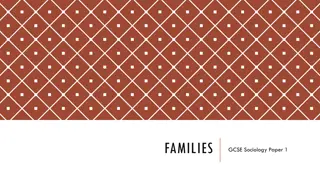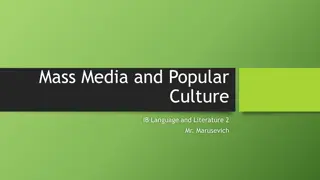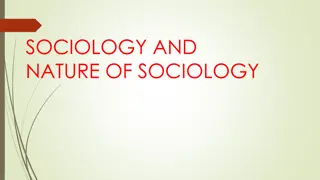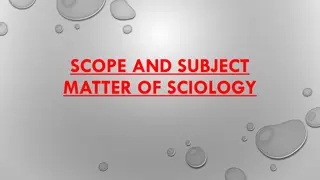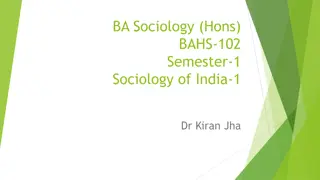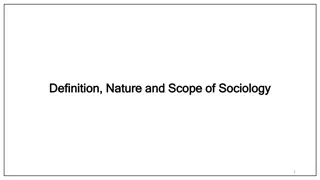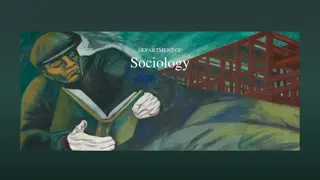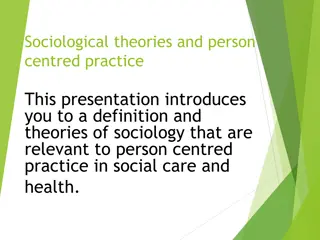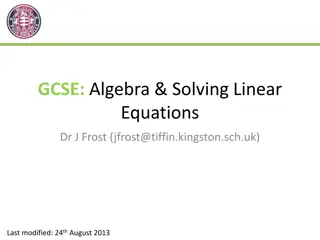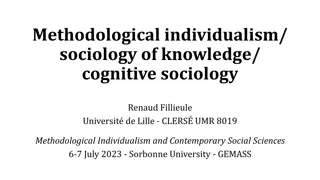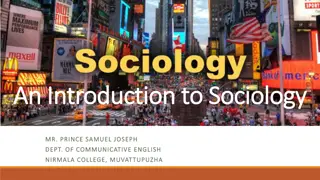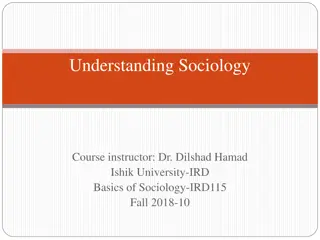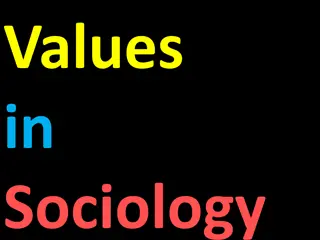Understanding Sociological Theories for GCSE Sociology Revision
Explore key sociological theories including Marxism, Functionalism, Feminism, and Interactionism. Understand how these theories interpret society and influence social dynamics. Engage in interactive activities like the Gingerbread Theory to apply concepts creatively. Discover main key studies by scholars such as Willis, Parsons, Walby, and Becker that relate to each theory.
Download Presentation

Please find below an Image/Link to download the presentation.
The content on the website is provided AS IS for your information and personal use only. It may not be sold, licensed, or shared on other websites without obtaining consent from the author. Download presentation by click this link. If you encounter any issues during the download, it is possible that the publisher has removed the file from their server.
E N D
Presentation Transcript
GCSE SOCIOLOGY REVISION OF SOCIOLOGICAL THEORIES
MAIN KEY THEORIES: MARXISM: FUNCTIONALISM: FEMINISM: INTERACTIONISM:
MAIN KEY THEORIES: MARXISM: A conflict theory identities a class divide in society. Capitalist society benefits the bourgeoisie (ruling class) at the expense of the proletariat (Working class). Each part of society (family, education etc.) exists to benefit the bourgeoisie by socialising the proletariat to accept their low status in society and be good, compliant workers. (False Class Consciousness) The Bourgeoisie have power in society. FUNCTIONALISM: All societies have basic needs that must be satisfied (Functional Prerequisites) Biological analogy society is like a living thing made up of lots of vital parts (e.g. family, education etc.) that keep society functioning. All parts of society play an important function of socialisation (teaching norms and values) this ensures a value consensus and maintains social order. FEMINISM: Society is patriarchal (male dominated) They say that every part of society is patriarchal, E.G: FAMILY - conjugal roles are segregated women expected to do the expressive role (and paid work too) dual burden/ triple shift WORKPLACE men dominate top positions and best pay in the workplace. Different types of feminism (Radical/ Liberal) INTERACTIONISM: Focuses on small scale human actions rather than whole society. Likes to study individuals and small subcultures to understand their behaviour, interactions and actions. E.G. if studying education they want to explore what happens to individuals in school (labelling and the impact of teachers interactions self fulfilling prophecy) Like to use qualitative methods (observation/ interviews)
GINGERBREAD THEORY ACTIVITY: ACTIVITY: In small groups you will be allocated a sociological theory. You will be given: A plain gingerbread man Icing Sweets/ Sprinkles A4 paper Pen YOUR TASK: To create a scene that clearly indicates what sociological theory your gingerbread man is. You cannot write any words. The other groups will need to try and guess your gingerbread mans sociological theory.
MAIN KEY STUDY RELATING TO EACH SOCIOLOGICAL THEORY: MARXISM (Willis): FUNCTIONALISM (Parsons): FEMINISM (Walby): INTERACTIONISM (Becker):




